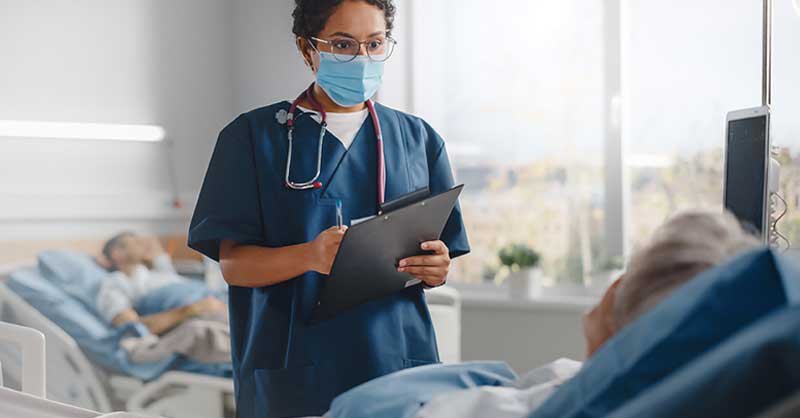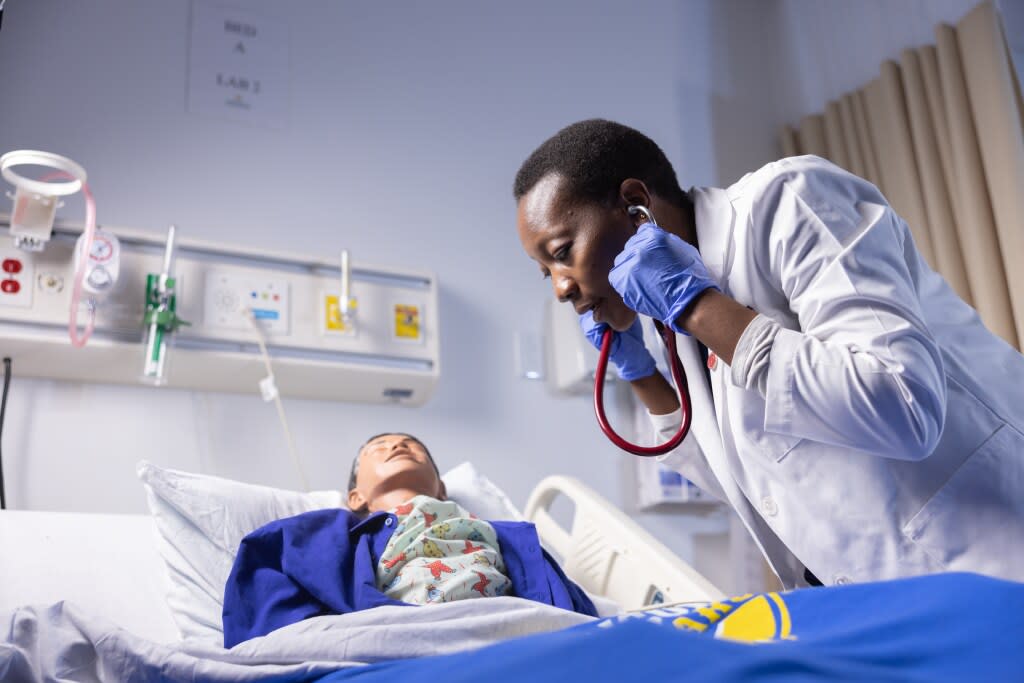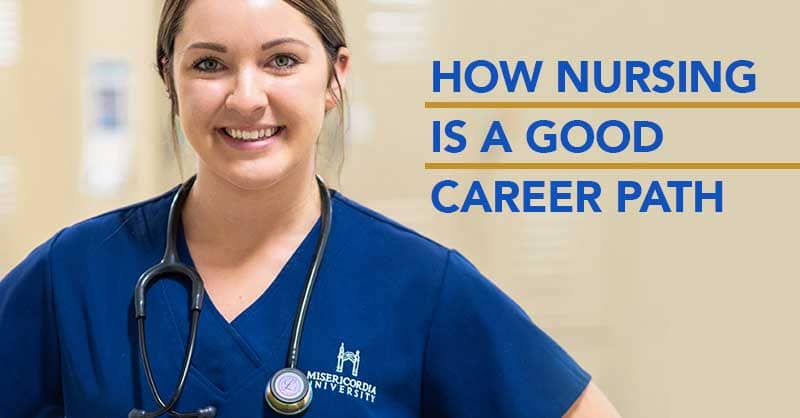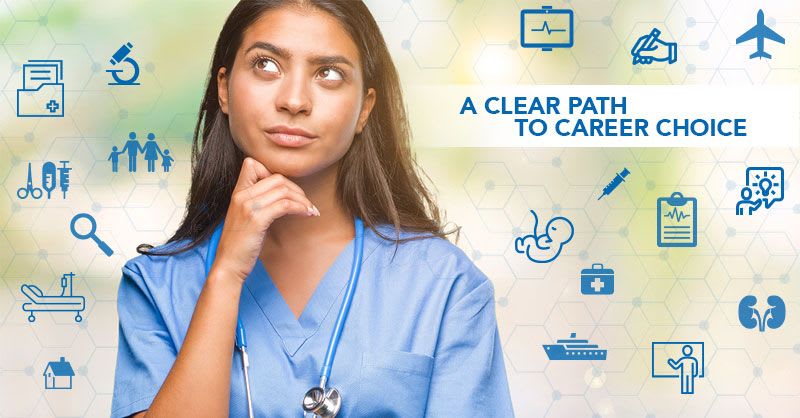Why is Clinical Experience Important in Nursing? 8 Reasons to Value Clinicals
Each blog post is dated and contains accurate information as of that date. Certain information may have changed since the blog post publication date. If you would like to confirm the current accuracy of blog information, please visit our ABSN overview page or contact admissions at (866) 885-6337.
Why is clinical experience important in nursing? Getting great nursing clinical experience is key to becoming a nurse. This is because clinicals expose you to a nursing career, improve your skills, cement your knowledge, teach you teamwork, help you network, and clarify where you want to work as a nurse.

Real world experience is a key component of nursing education. Why is clinical experience important in nursing? Learning in real-world scenarios transforms students into skilled nurses who can effectively care for patients in need.
At Misericordia University, our Accelerated Bachelor of Science in Nursing (ABSN) program is committed to preparing the next generation of nurses. We recognize the value of a rich nursing clinical experience to develop our students into the best nurses possible.
In this blog, we’ll cover the top eight reasons why what you do in nursing clinicals will shape your future career.
1. Clinicals Expose You to a Nursing Career
In a hybrid nursing curriculum, you’ll learn through online courses, skills and simulation labs, and clinicals. Clinicals bear the most similarity to your future career. So what are clinicals like in an ABSN program? Alongside preceptors, students directly care for patients in the clinic, hospital, and other health care facilities. Seeing nursing duties in real life gives you valuable perspective. You can see what it’s like to work a hospital shift, care for clinic patients, complete computer charting, manage patients, administer medications, and so on.
Being in clinic also affirms your career choice by exposing you to the rewarding aspects of patient care. Amid the challenging studying of an accelerated nursing program, clinical rotations remind you of the career ahead of you and why you are putting in the hard work.
2. Clinicals Improve Your Hands-On Skills
Nursing students are responsible for learning numerous hands-on skills. One of the best ways to improve your dexterity of these tasks is to practice again and again. But what do you do in nursing clinicals to develop these tactile skills? You get to practice them with real patients under supervision of a skilled nurse. Some examples of action-oriented skills you’ll learn in clinicals include:
- Starting IVs
- Placing nasogastric (NG) tubes
- Inserting catheters
- Applying dressings
- Monitoring vital signs
- Preventing pressure injuries
In Misericordia’s ABSN program, our simulation labs are ideal for not only initially helping you learn these tactile skills, but also practicing with real patients in a clinical situation to strengthen your proficiency. Nursing clinical experience is key for refining practical skills you’ll use daily when caring for patients as a nurse.

3. You Can Develop Your Soft Skills
By working in a clinical environment, students learn how to succeed in an ever-changing, growing field. Not only do clinicals refine your hard nursing skills, but they also help you improve your soft skills for nursing. A few of these soft skills include:
- Compassion
- Listening
- Communication
- Problem solving
- Attention to detail
By working with patients and others on the health care team, you’ll see how they interact with patients and handle clinical challenges. Clinicals will help you become stronger at the soft skills that are key for nursing success.
4. Nursing Clinical Experience Cements Your Knowledge
Does what do you do in nursing clinicals help you learn your online coursework? One of the best ways to remember a concept from a textbook is to see it in real life. It’s one thing to read about the symptoms of a heart attack or a stroke in a textbook. But the best way to cement that knowledge is by caring for a patient with that condition in real life.
When you care for patients in clinicals, they become intertwined in your memory bank. You’ll remember their personality, their symptoms, and their pain. You’ll also remember how the health care team helped them. This memory bank can help you retain knowledge. On exams, if you read a question, and you can connect it to a similar scenario from your own experience, you’ll be better prepared to answer the question.

Clinical experience with patients also plays the vital role of informing your future nursing decisions. When you encounter patients in the future, you’ll remember what you did before. Your past experiences inform your future actions. The value of learning how to be a nurse from real-world experiences cannot be overstated.
5. You’ll Practice Working Within a Health Care Team
One of the key soft skills nurses use every day is teamwork. Health care is all about team success, and patients thrive when the care team communicates and works well together. In clinicals, you’ll not only get to work with your preceptor, but you’ll also interact with nursing staff, therapists, and providers.
In-person nursing experience exposes you to the team setting and helps you learn the role of nursing in patient care. You’ll become more adept at using teamwork and collaboration to achieve health care goals.
6. You Get to Meet Fascinating Patients
One of the best parts of nursing is the patients. Getting to know patients and hear their stories is both an honor and a joy. Through nursing clinicals, you’ll get to work closely with patients, and you’ll have time to talk with them about their history, family, career, passion, and future.
You can talk with veterans about their military service, mothers about their children, toddlers about their favorite foods, and college students about their future plans. Nursing allows you to get to know people. It truly is an honor that nurses get to be a part of people’s lives in this way, and you’ll experience this as a nursing student, too.

Want to know more reasons to become a nurse? Learn more about the intrinsic and extrinsic benefits of a career in nursing.
7. You Can Form Professional Connections
Through rotations at local health care facilities, you’ll be able to network with various nursing professionals within your community. The nurses you encounter may be able to connect you with future jobs or provide references or recommendations after you graduate with a BSN.
At Misericordia University, our ABSN students complete their rotations with leading health care organizations in Pittsburgh. Therefore, remember to make the most of your clinical experiences. Doing so helps you stand out and make lasting professional connections with some of the top nurses in the region.
8. They Help You Decide Which Area of Nursing to Pursue
One benefit of clinical rotations is they allow you to experience firsthand the varied settings where nurses can work. Clinical rotations expose you to many areas of clinical practice, including:
- Primary care
- Inpatient hospital nursing
- Pediatrics
- Psychiatric care
- Women’s health and obstetric care
- Community health
These are just a few of the areas you may expect in clinical rotations at a program like Misericordia’s ABSN. With experience in so many settings, you’ll be able to see what broad area of nursing most suits your interests and personality. Misericordia’s ABSN prepares our nursing students to graduate as generalist nurses. Some niche nursing specialties, such as intensive care, may require more training or work experience after graduation. Diverse clinicals will help you narrow down your decision when it comes time to start applying for nursing jobs.

Want to know what nursing career options are available after you earn your BSN? Learn more about the many clinical and non-clinical fields nurses can pursue.
Are You Ready to Start Your Nursing Career?
Now that we’ve covered why clinical experience is important in for nursing education, you can see why it is so rewarding and valuable for nursing students. Are you interested in entering an ABSN program and pursuing a clinical career in nursing? If you have a non-nursing bachelor’s degree or at least 60 college credits, Misericordia’s accelerated BSN program may be the best path for you to achieve your nursing goals.
The ABSN program at Misericordia offers three start dates each year — in January, May, and August — meaning you may be able to start sooner. Through our 16-month ABSN program, Misericordia will equip you with the skills and knowledge to sit for the NCLEX and start a career as a caring and successful nurse.
If you want to learn more about getting started with the accelerated BSN program at Misericordia, reach out to our admissions counselors today.
